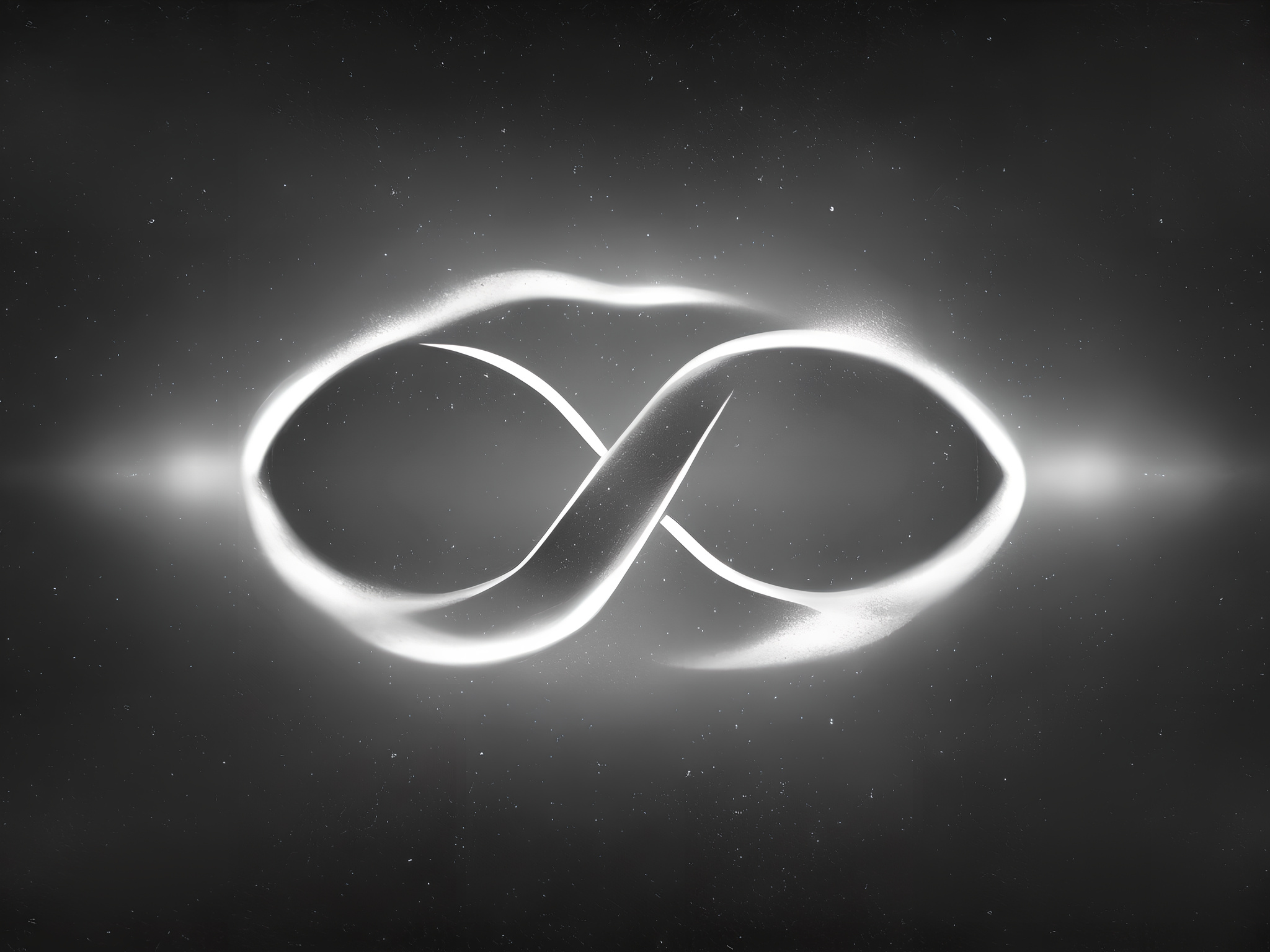Ein beliebtes Argument, die Unendlichkeit des Universums zu widerlegen, lautet ungefähr so: Wenn das Universum uendlich (groß) wäre, warum ist der Nachthimmel dann nicht weiß statt schwarz?
Wenn es unendlich viele Sterne in allen Richtungen gäbe, müsste der Nachhimmel doch weiß erstrahlen. Das Licht der unendlich vielen Sterne würde sich summieren und den gesamten Nachthimmel ausleuchten. Das ist aber nicht der Fall. Captain Obvious.
Nicht schlecht, aber ganz so einfach ist es auch wieder nicht, die Unendlichkeit zu widerlegen. Das Argument macht nämlich drei weitere implizite Annahmen, erstens dass das Universum isotropisch und homogen sei (das ist wahrscheinlich wahr, Universum in allen Richtungen ähnlich strukturiert), zweitens Licht sich unendlich weit bewegen kann (Licht kann tatsächlich sehr große Distanzen zurücklegen) und drittens das Universum bereits ewig lange existiere (Steady State Universe), damit uns das Licht von fernen Sternen überhaupt erreichen könne.
Sollte eine dieser Annahmen falsch sein, würde der Nachhimmel großteils schwarz sein, unabhängig davon, ob das Universum unendlich groß ist oder nicht.
Die Lichtgeschwindigkeit ist jedenfalls endlich (nicht unendlich schnell) und in kosmischen Dimensionen eigentlich ziemlich langsam und der limitierende Faktor, wenn das Universum laut herrschender Big-Bang-Theorie vor 13.8 Milliarden Jahren entstanden ist und sich seitdem ausdehnt, hat das Universum einfach nicht genug Zeit gehabt, damit uns das Licht von (un)endlich weit entfernten Sternen überhaupt erreicht.
Das Argument funktioniert nicht ganz so gut wie erhofft, ist aber auch kein Beweis für die Unendlichkeit und schließt zumindest ein unendlich altes, unendlich großes Steady-State-Universum aus.
Der Nachhimmel ist schwarz und nicht weiß.
Was sagt ihr dazu?
ps. es gibt übrigens noch ein weiteres Problem des Weißen-Nachthimmel-Arguments und zwar dass die Helligkeit der Sterne quadratisch mit der Distanz abnehmen und Sterne das Licht von dahinterliegenden Sternen teilweise blockieren. Ein weißer Nachhimmel wäre selbst bei unendlich vielen Sternen unrealistisch.

Is the universe infinite or rather finite? AI-generated illustration (Stable Diffusion)
English
A popular argument to refute the infinity of the universe goes something like this: If the universe were infinite (infinitely large), why isn't the night sky white instead of black?
If there were an infinite number of stars in all directions, the night sky would have to be white. The light from the infinite number of stars would add up and illuminate the entire night sky. But that is not the case. Captain Obvious.
Not bad, but it's not quite that easy to disprove infinity. The argument makes three further implicit assumptions, firstly that the universe is isoptropic and homogeneous (this is probably true, the universe is structured similarly in all directions), secondly that light can travel infinitely far (light can really travel extreme long distances) and thirdly that the universe has already existed for an eternity (Steady State Universe) so that the light from distant stars can reach us at all.
If one of these assumptions is wrong, the night sky would be mostly black, regardless of whether the universe is infinite or not.
In any case, the speed of light is finite (not infinitely fast) and actually quite slow in cosmic dimensions and the limiting factor, if according to the prevailing big bang theory the universe was created 13.8 billion years ago and has been expanding ever since, the universe has simply not had enough time for the light from (im)finitely distant stars to reach us at all.
The argument does not work quite as well as hoped, but it is also not a proof of infinity and at least rules out an infinitely old, infinitely large steady-state universe.
The night sky is black, not white.
What do you think?
ps. by the way, there is another problem with the white sky argument, the brightness of stars decreases quadratically with respect to distance and stars partially block the light of stars behind them. A white night sky would therefore be unrealistic even with an infinite number of stars.
Finite or infinite universe
Part 1: Definitions https://stemgeeks.net/hive-163521/@vikisecrets/why-the-universe-is-most-likely-not-infinite-part-1-definitions-reply-with-infinite-or-finite
Part 2: Scientific question or not? https://stemgeeks.net/hive-163521/@vikisecrets/why-the-universe-is-most-likely-not-infinite-part-2-scientific-question-or-not
Part 3: Infinity as a placeholder for ignorance https://stemgeeks.net/hive-163521/@vikisecrets/why-the-universe-is-most-likely-not-infinite-part-3-infinity-as-a-placeholder-for-ignorance
Part 4: Everything we measure is finite
https://stemgeeks.net/@vikisecrets/why-the-universe-is-most-likely-not-infinite-part-4-everything-we-measure-is-finite
Live your Secrets and Hive Prosper 🍯
xx Viki @vikisecrets
Posted using STEMGeeks

